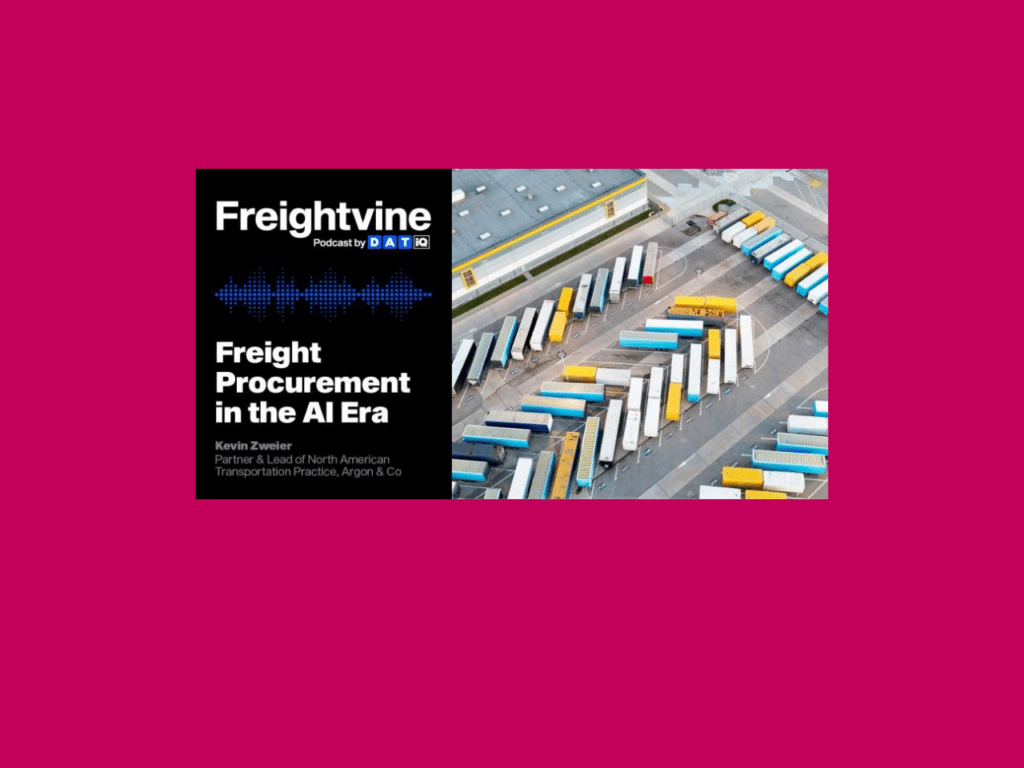In an article from this past summer, I discussed logistics outsourcing in the context of a company’s strategic transformation journey as “one of the options that could provide the organization with the capabilities needed, perhaps quicker than could be provided internally” (see Modern Logistics Outsourcing: a Strategic Guide for 2025). In this article I want to focus on one of the important capabilities increasingly under consideration for outsourcing – transportation.
What Does “Transportation Outsourcing” Mean?
Transportation outsourcing means different things to different people. For some manufacturers or retailers (let’s call them shippers for simplicity), transportation outsourcing means using an outside trucking company instead of the in-house private fleet. For other shippers, transportation outsourcing encompasses turning all strategic, tactical, and execution activities over to an outside third party. There is not even a name or term that everyone agrees on when referencing this topic, with phrases such as 3rd/4th Party Logistics (3PL/4PL), Managed Transportation Service (MTS), Managed Service Provider (MSP), and Lead Logistics Provider (LLP) often being utilized.
From Strategy to Execution: Get into the Weeds
For shippers considering transportation outsourcing, there must be deep consideration and alignment on the subset of transportation activities that are in scope to be outsourced. It is critical to get into the details of what functions are being outsourced:
- The physical movement of loads
- Strategic or tactical procurement
- Day-to-day execution (e.g., load tendering, appointment setting, tracking)
- Freight payment, claims, etc.
The various modes of transportation also enter this equation as few shippers view truckload, less-than-truckload, intermodal, rail, parcel, ocean, and airfreight the same way from an insourcing/outsourcing standpoint.
There also must be serious thought around why outsource transportation management in the first place. What is driving the shipper to consider this option?
The Case for Outsourcing: Four Common Drivers
- Cost of Operations: The outsourced provider could potentially perform transportation functions for a lower cost than internal resources.
- Cost of Freight Movement: The outsourced provider may be able to “buy” more effectively with a larger, leveraged spend and deliver a lower overall transportation expense to the organization. (true in some transportation modes, completely overblown in others)
- Capability Improvement: A shipper may need capabilities now or in the near future that the current transportation team does not possess. Limited, knowledgeable resources may exist, and hiring/training new ones has proved too challenging.
- Speed to Value: The shipper may know the path they want to take to improve their transportation cost position but finds that an outsourced provider could accelerate that “speed to value”. This consideration often arises when a shipper finds it difficult to get prioritized on its own IT roadmap and struggles to modernize their transportation technology ecosystem.
Pushing Toward the Single Pane of Glass View for Transportation
The hope for an interested shipper is that outsourcing is a path to enable the standardization and centralization of transportation operations in one fell swoop. Thus, a final point to discuss is the number of outsourced providers a shipper utilizes.
Most shippers are striving for a single source of truth accessible via a master data repository that holds all the relevant transportation data. That utopia is hard to achieve if a shipper is forced to access various outsource providers systems, portals, and platforms.
Fragmenting core logistics operations across multiple providers (e.g., having multiple managed transportation service providers in the same region or managing the same mode) creates integration complexity and dilutes partnership benefits. An outsourced transportation provider must achieve deep integration with your systems, processes, and culture to realize its full potential.
Final Word: This Is a Strategic Investment, Not a Shortcut
There is no easy button when it comes to outsourcing an activity as broad and with as many touchpoints as transportation. It is a strategic choice and investment that has massive and long-lasting ramifications for an organization.







